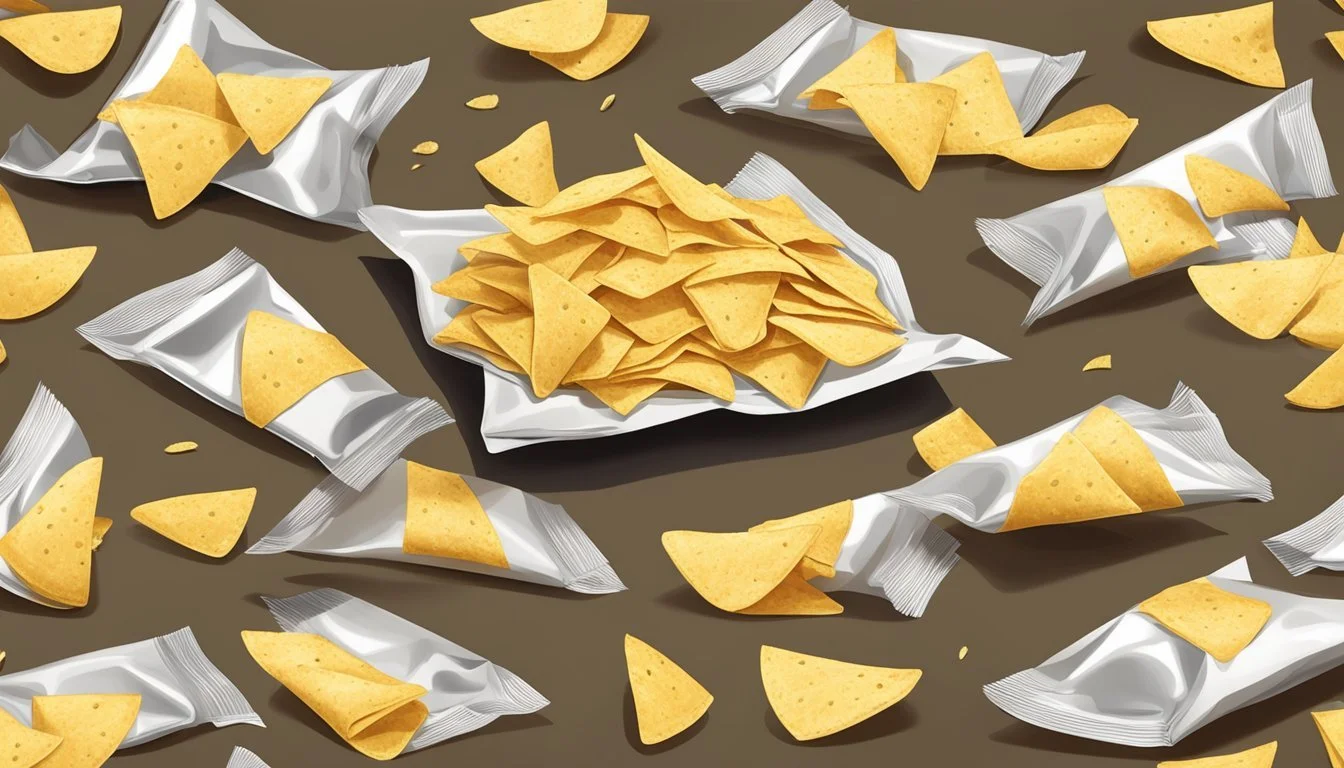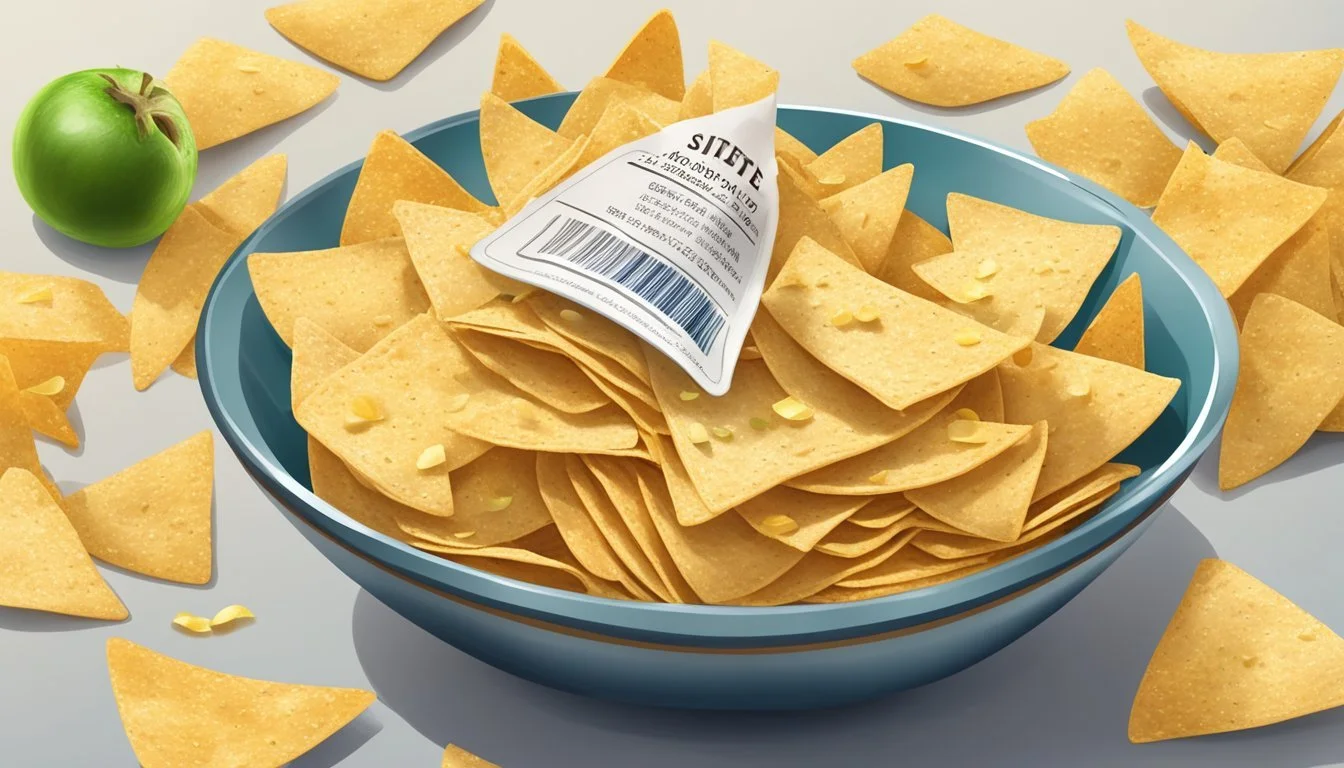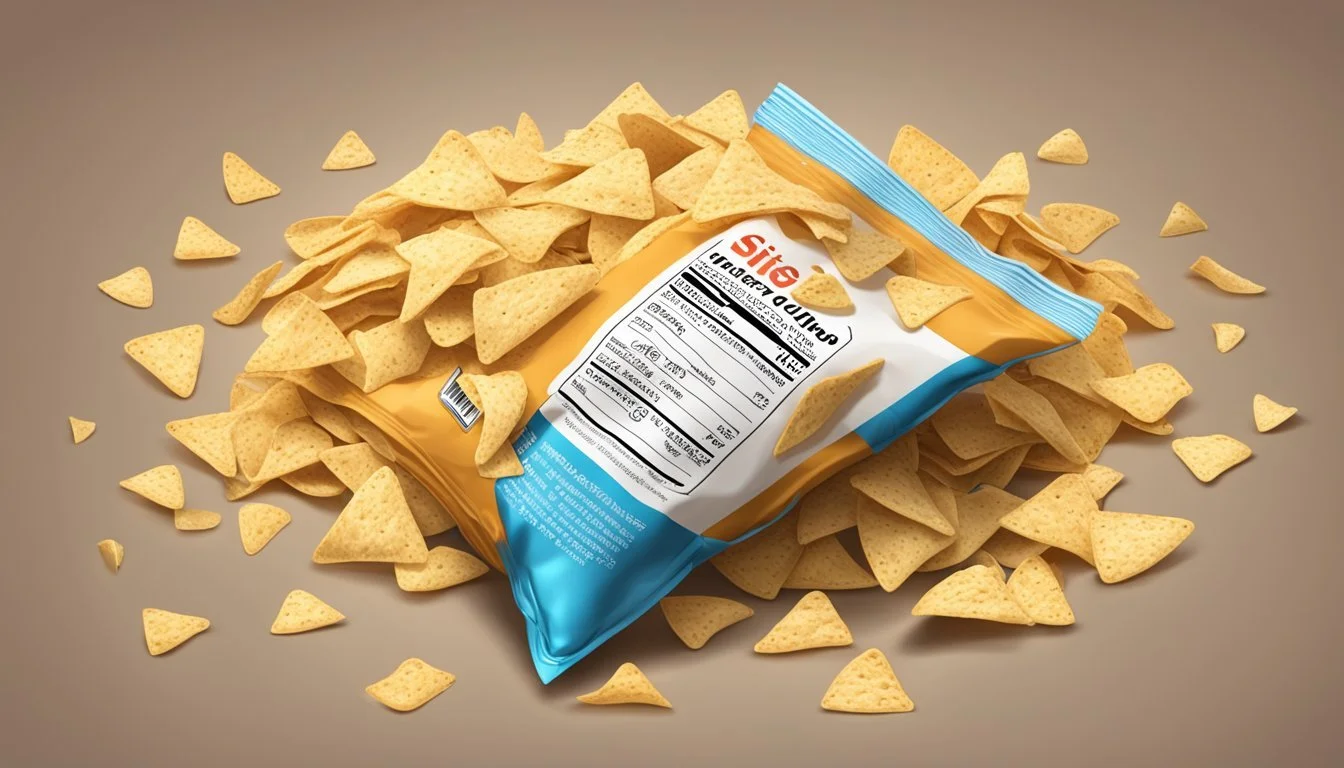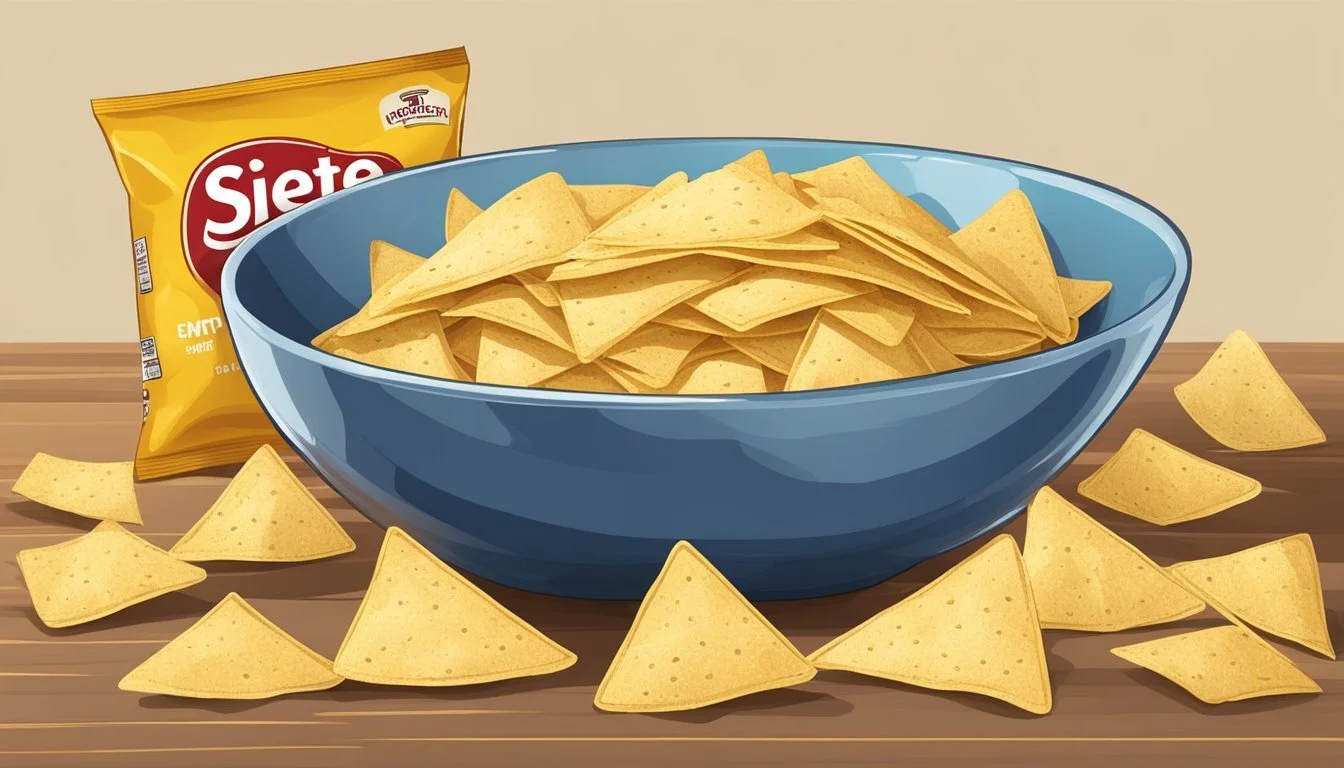How Many Servings of Siete Tortilla Chips Is Too Much
A Nutritional Guide
When it comes to enjoying snacks like Siete tortilla chips, moderation is key. A single serving of Siete No Salt Grain Free Tortilla Chips—about 1 ounce or 28 grams—contains 130 calories, 7 grams of fat, and 20 grams of carbohydrates. Consuming multiple servings at a time can significantly increase your calorie and fat intake, which may contribute to unwanted weight gain if not balanced with physical activity.
It's easy to get carried away, especially when snacking while distracted. Nutrition experts suggest sticking to one or two servings per sitting to maintain a balanced diet without overindulging. Paying attention to portion sizes and nutritional values on the packaging can help you enjoy your favorite snacks responsibly and healthily.
Siete's chips are a tasty option made with grain-free ingredients, which can be appealing to those following specific dietary preferences. Yet, it's crucial to consider the overall nutrition profile and how it fits into your daily intake. Keeping an eye on serving sizes ensures you can indulge without compromising your health goals.
Understanding Tortilla Chips
Tortilla chips, known for their crunchy texture and versatility, are a popular snack. This section covers what tortilla chips are and the common ingredients used in their production.
What Are Tortilla Chips?
Tortilla chips are thin, fried or baked slices made from corn tortillas, enjoyed worldwide as a snack. Originally from Mexico, they have become a staple in various cuisines. These chips are typically triangular, but can come in different shapes and sizes.
They are often enjoyed with dips like salsa, guacamole, or queso. With numerous variations available, tortilla chips cater to diverse tastes and dietary preferences.
Common Ingredients in Tortilla Chips
The basic ingredients in tortilla chips begin with corn or corn flour, which forms the base. Chips can also be crafted from cassava flour, offering a gluten-free alternative. Avocado oil is a popular choice for frying due to its high smoke point and health benefits.
Sea salt enhances the flavor, while additional ingredients like lime provide a tangy twist. Seasonings can vary widely, including spices and herbs, to create unique flavor profiles.
Nutritional Profile
Siete Tortilla Chips offer a distinctive combination of calories, macronutrients, and vitamins and minerals that are crucial to consider when determining a reasonable serving size. This section will break down these components to give a comprehensive understanding of what each serving of Siete Tortilla Chips contributes nutritionally.
Calories and Serving Size
One serving size of Siete Tortilla Chips is typically 1 ounce (28 grams), equivalent to about 16 chips. Each serving contains approximately 130 to 150 calories. The calorie count can vary slightly depending on the specific variety of chip.
Maintaining awareness of portion control is essential to prevent excessive calorie intake. Considering the serving size helps in planning an appropriate portion, especially for those mindful of caloric intake.
Macronutrients
Total Fat: One serving contains 7-8 grams of total fat, with roughly 1-3.5 grams of saturated fat. The chips have no trans fat, making them a healthier option in comparison to many other snacks.
Carbohydrates: Each serving provides around 18 grams of total carbohydrates. This includes approximately 1 gram of dietary fiber and minimal added sugars. The carbohydrate content is suitable for quick energy but should be considered within the context of a balanced diet.
Protein: Siete Tortilla Chips offer about 2 grams of protein per serving. While not a significant protein source, it contributes modestly to the overall daily intake.
Vitamins and Minerals
Siete Tortilla Chips contain small amounts of essential vitamins and minerals:
Iron: Provides about 2% of the daily recommended value per serving, supporting oxygen transport in the body.
Calcium: Offers minimal calcium, at less than 2% of the daily value, which is essential for bone health.
Potassium: Contains minor potassium levels, important for heart and muscle function.
Additionally, these chips do not significantly contribute to daily intakes of vitamins such as A, C, D, E, and K, or B-vitamins like B6 and B12.
Understanding these nutritional components aids in making informed dietary choices and ensuring that consumption remains within healthy limits.
Health Implications
Understanding the health implications of consuming too many Siete tortilla chips involves analyzing both balanced diet and portion control, as well as the impact of excessive intake. Moderation is key to ensuring these chips fit into a balanced diet without adverse effects.
Balanced Diet and Portion Control
Portion control is crucial when including Siete tortilla chips in a healthy diet.
A serving size of 1 ounce (28 grams) contains about 130-150 calories. Given the average daily calorie intake of around 2,000 for most adults, consuming multiple servings can add up quickly.
Fats are another factor; one serving has roughly 7-8 grams of total fat and 1-3 grams of saturated fat. The daily value for fat is about 65 grams, which means three servings could contribute nearly one-third of the daily fat intake.
Sodium also warrants attention. Each serving contains 75-120 milligrams of sodium. High sodium intake is linked to high blood pressure, so keeping portions in check is essential for maintaining a healthy sodium level.
Impact of Excessive Intake
Eating too many Siete tortilla chips can lead to weight gain. Even at 150 calories per serving, multiple servings can quickly surpass recommended daily calorie limits. This excess calorie intake without corresponding physical activity increases the risk of weight gain.
Excessive intake can also heighten sodium levels, increasing the risk of high blood pressure. It's recommended to keep sodium intake under 2,300 milligrams per day; consuming too much from snacks like tortilla chips can make it challenging to stay within this limit.
The impact on nutritional balance is another concern. High fat and low fiber content could displace more nutritious foods in the diet, disrupting overall nutritional balance. Balancing tortilla chips with fiber-rich vegetables and lean proteins can help maintain a balanced diet.
Analysis of Siete Tortilla Chips
Siete Tortilla Chips come in a variety of flavors and specialty options, catering to different dietary needs and preferences. The nutritional profile of these chips varies depending on the specific product, impacting factors such as calorie intake, fat content, and carbohydrate levels.
Specialty Ingredients and Varieties
Siete's offerings include unique ingredients and cater to specific dietary requirements. Grain-free varieties use alternative flours like almond, cassava, and coconut, making them suitable for those avoiding grains. Flavored tortilla chips like Lime and Churro Strips offer diverse taste profiles, enhancing the snack experience.
For instance, Churro Strips are a sweet option featuring cinnamon and sugar. There are also No Salt Grain Free Tortilla Chips, ideal for those monitoring sodium intake. These varieties make Siete a versatile option for those with dietary restrictions or unique taste preferences.
Nutritional Differences
The nutritional content varies across different Siete products. A standard serving size (1 oz or 28g) of many Siete chips, such as the Sea Salt variety, provides approximately 130 calories. The total fat content is around 7g, with 1g of saturated fat. They typically have 0g trans fat and cholesterol, making them a heart-friendly choice.
Each product's sodium content can vary significantly. For example, while the Sea Salt chips contain about 150mg sodium, the No Salt chips have negligible amounts. Carbohydrate content is influenced by the ingredients, impacting net carbs, which is crucial for those on ketogenic diets. Regular monitoring of serving sizes helps manage nutritional intake effectively.
Comparing Tortilla Chip Brands
Different tortilla chip brands vary widely in ingredients, flavors, and nutritional content. This section will look at some popular options and important aspects to consider when choosing a tortilla chip brand.
Tortilla Chip Alternatives
Siete Grain-Free Sea Salt Tortilla Chips use cassava flour instead of corn, appealing to those seeking a grain-free diet. They are also lower in carbs compared to traditional chips.
365 Whole Foods Market Organic Unsalted Restaurant-Style Tortilla Chips offer a more traditional but organic and low-sodium option.
From the Ground Up Grain-Free Nacho Flavored Cauliflower Tortilla Chips are another grain-free choice, made from a blend of cauliflower and other vegetables, hence more suited for those with specific dietary needs.
Beanitos Restaurant-Style White Bean Tortilla Chips provide a high-protein alternative, due to their base ingredient of white beans.
Label Reading and Consumer Choices
When comparing brands, understanding the ingredient list and nutritional facts is essential.
For instance, Siete chips include cassava flour, avocado oil, and coconut oil, making them suitable for various dietary restrictions.
Good & Gather Organic Veggie Flavored Corn Tortilla Chips come with added flaxseed and other vegetables, offering additional fiber and nutrients.
A typical serving of Beanitos includes protein and fiber from white beans, making it a favorable option for those looking to enhance their protein intake.
Consumers should consider not only the flavor and texture but also the presence of allergens, sodium content, and unhealthy fats. Look for keywords like "organic," "non-GMO," and "gluten-free" to cater to specific dietary preferences.
Practical Tips for Consumption
It's essential to balance enjoyment of Siete tortilla chips with mindful consumption to maintain a healthy lifestyle. Focusing on portion control and integrating physical activity can help.
How to Determine the Ideal Serving Size
Understanding serving size is crucial. Siete tortilla chips generally list 1 ounce (28 grams) as a serving, roughly 16 chips. This serving contains about 130 calories, 7 grams of fat, and minimal sodium, making it a reasonable option if consumed in moderation.
Tracking servings can prevent overconsumption. Use digital kitchen scales or measuring cups for accuracy. Pay attention to nutrition labels. Keeping snacks to one serving per sitting helps maintain moderation and balance in daily diets.
Incorporating Tortilla Chips into a Healthy Lifestyle
Integrating Siete tortilla chips into a balanced diet requires planning. Pair chips with nutrient-dense, low-calorie dips like salsa or guacamole. Regular physical activity helps offset calorie intake, supporting a healthier lifestyle.
Healthy portion sizes ensure chips remain a treat rather than a dietary staple. Combine them with meals featuring lean proteins and vegetables to create balanced dishes without relying too heavily on snacks.
Focus on moderation. Occasional indulgence is fine, but maintaining overall dietary balance is critical. Adjust other meals throughout the day to account for any indulgent snacks, ensuring a varied and nutritious diet.








